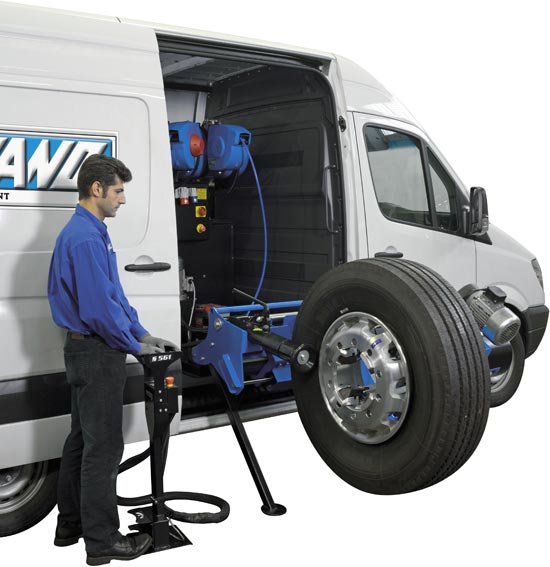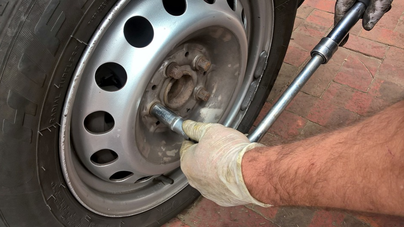Morris Tires: Your Destination for GMC Tires Service Quality
Morris Tires: Your Destination for GMC Tires Service Quality
Blog Article
Tire Service: The Influence of Weather
When it involves guaranteeing optimal efficiency and safety and security on the roadway, comprehending the impact of weather condition problems on tire solution is vital. From scorching warmth to icy roadways, each weather aspect can substantially influence tire performance and general driving experience. By diving right into the impacts of varying climate condition on tires, motorists can acquire valuable insights that may improve their vehicle's performance and durability. In this conversation, we will check out the elaborate connection between weather and tire solution, shedding light on the relevance of weather-specific tire upkeep techniques and factors to consider.
Warm and Tire Performance
When revealed to high temperatures, tires experience changes in efficiency that can significantly influence lorry security and handling. The heat generated from long term driving or hot weather condition conditions causes the tire rubber to soften, leading to lowered walk life and boosted wear. As the rubber comes to be softer, the tire's grasp on the roadway reduces, affecting braking ranges and total traction. In severe cases, excessive warm can also create tire blowouts, positioning an extreme safety threat to the car and its passengers.

Winter Results
Cold weather problems can have a substantial effect on tire efficiency and security. As temperature levels decline, tire rubber can harden, leading to lowered traction on icy or snow-covered roadways. In chilly weather condition, tires may additionally lose atmospheric pressure extra swiftly, which can affect dealing with and fuel performance. Furthermore, chilly temperature levels can trigger tire sidewalls to stiffen, enhancing the danger of damages from potholes or various other road risks.
To reduce the results of winter on tires, it is crucial to on a regular basis check tire stress and inflate them to the maker's suggested levels. Making use of winter or all-season tires made for winter problems can also enhance traction and grip on icy or snowy roads. Correct tire upkeep, including routine inspections for wear and damages, ends up being even a lot more critical throughout colder months to make sure optimum efficiency and safety and security.
Rainy Conditions Influence
Throughout wet conditions, tire performance and safety can be significantly affected by the wet roadway surfaces and reduced presence. The tread pattern of tires plays an important role in keeping traction on wet roads. Tires with damaged footsteps are much more susceptible to hydroplaning, where a layer of useful source water builds up between the roadway and the tire surface, causing loss of grip. To battle this, chauffeurs should frequently check their tires for sufficient step deepness and take into consideration buying tires specifically made for wet conditions.
In addition, stormy weather condition can also decrease exposure, making it testing for chauffeurs to see the roadway ahead plainly (GMC Tire Service). In such problems, it is vital to adjust driving rates as necessary and preserve a safe adhering to range to enable for sudden stops. Appropriately filled with air tires can also assist in preserving control on damp roadways by offering better handling and hold
Snow and Tire Safety
Snow-covered roadways pose distinct challenges for drivers, highlighting the importance of correct tire selection and maintenance. When driving in snowy problems, having the ideal tires can make a substantial difference in safety and security and efficiency. Winter season tires are developed with special rubber substances and tread patterns to provide much better grip on snow and ice compared to all-season tires. The deeper footsteps and sipes of winter tires assist grip the road better, lowering the danger of gliding and sliding.

It is important to follow maker directions when making use of and mounting tire chains to avoid damage to the tires and lorry. By choosing the right tires, maintaining appropriate inflation, and considering added traction aids like tire chains, drivers can enhance their safety when browsing snow-covered roadways.
Weather-Related Tire Upkeep
When faced with different weather problems, proper tire upkeep comes to be an important facet of vehicle security and performance. Weather-related tire maintenance encompasses a variety of techniques intended at making sure optimal tire feature and longevity in various weather condition situations. One vital aspect of weather-related tire upkeep is tire pressure guideline. Changing temperatures can create check tire stress to vary, influencing traction and fuel performance. On a regular basis checking and changing tire stress according to producer recommendations is vital for secure driving in changing weather problems. In addition, tire tread deepness plays a considerable role in handling various weather aspects. Tires with appropriate walk deepness provide better hold on damp or icy roadways, reducing the danger of hydroplaning or skidding. When tread wear gets to a particular depth is crucial for keeping traction and stability in unfavorable climate, examining tire walk on a regular basis and replacing tires. By focusing on weather-related tire upkeep, drivers can boost safety and security, improve automobile efficiency, and extend the life expectancy of their tires.
Conclusion
Finally, climate condition have a considerable influence on tire efficiency and safety. From heat impacting his explanation tire stress and use to winter minimizing grip, it is important to think about the weather condition when preserving and utilizing tires. Stormy problems can lower grasp and result in hydroplaning, while snow can enhance the danger of crashes if tires are not appropriately equipped. Weather-related tire maintenance is critical in making certain optimal performance and safety and security when driving.
In this discussion, we will discover the complex partnership between climate problems and tire service, dropping light on the importance of weather-specific tire upkeep techniques and considerations.

Report this page